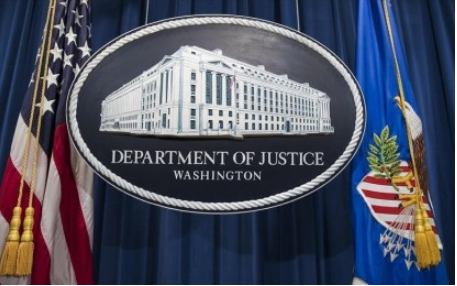Signature Bank is facing scrutiny from the U.S. Department of Justice over potential shortcomings in its efforts to thwart money laundering, according to insiders familiar with the matter cited in a Bloomberg report on Wednesday.
The investigations are taking place in both Washington and Manhattan, marking a significant development for the New York-based financial institution.
Signature Bank Involved In Criminal Activities?
The DOJ was said to be especially concerned about whether or not the bank was taking preventative efforts to screen account holders and track down illicit activity.
Bloomberg cites two anonymous people saying the SEC is “taking a look” at the bank as part of a separate investigation. The specifics of the SEC’s investigation were not revealed in the report.
Banks that are found to be involved in money laundering may face a range of charges and penalties, including hefty fines, loss of banking licenses, and even criminal prosecution.
The charges can vary depending on the severity and scope of the money laundering activities, but can include violations of the Bank Secrecy Act, the USA Patriot Act, and other federal and state laws.
Some of the potential charges that banks may face for money laundering include facilitating financial transactions for criminal organizations, failing to properly report suspicious activities, and neglecting to establish and maintain effective anti-money laundering programs.
These charges can result in significant financial and reputational damage to the bank, as well as potential criminal liability for individual employees and executives involved in the wrongdoing.
Federal Reserve Seizes Signature Bank
The Federal Reserve announced on March 12 that state regulators had closed Signature Bank, which had several cryptocurrency clients.
Signature and its employees reportedly face no allegations of misconduct, and the SEC and DOJ may close their investigations without filing any charges or taking any further action.
Timeliness of the investigations and their potential impact on the recent decision by New York state regulators to close the bank remain unknown.
Although, the consequences for banks that engage in money laundering can be severe, highlighting the importance of robust compliance measures and proactive efforts to detect and prevent illicit financial activity.
In addition to financial penalties, banks that engage in money laundering can also face the loss of their banking licenses. This can have a catastrophic effect on a bank’s operations, as it effectively prevents them from operating in the financial industry.
The DOJ, the United States Attorney’s Office in the Southern District of New York, and the SEC all declined to comment to Bloomberg.
-Featured image from Hum Law Firm
















